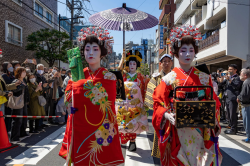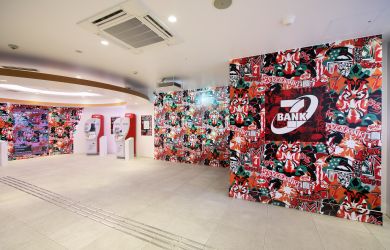
August 18, 2011
Summer of Setsuden
Tips for saving energy during the dog days of summer
By Metropolis
Originally published on metropolis.co.jp on August 2011
[slideshow id=23 w=400 h=400]
The big buzzword for Tokyoites this summer has been setsuden, or conservation of electricity. With the ongoing crisis at the Fukushima Daiichi Nuclear Power plant impeding electricity production, shortfalls have been expected in these high-demand summer months. The Ministry of Economy, Trade and Industry is now predicting capacity will reach 56.2 million kWh by the end of August, but that still falls short of the peak summer demand of 60 million kWh last year. In order to avoid the necessity of rolling blackouts, everyone needs to pitch in to reduce consumption.
Many businesses and organizations have helped out by implementing summer flextime schedules and relaxing their dress codes, but private households also need to do their part to bring down demand. Metropolis has got some relatively painless tips for lowering consumption at home.
The biggest drain on power is the air conditioner, which accounts for over a quarter of home appliance electricity usage. You don’t have to sweat through the entire summer without ever turning on the air, though. The Ministry of the Environment estimates that raising the temperature on your air-conditioning unit just one degree results in about 13 percent less energy consumption. They also say you can increase efficiency by cleaning the filter every two weeks and refraining from placing things on or around outdoor units. Putting up lace curtains or bamboo screens to keep out direct sunlight and closing the curtains when you are not at home also helps to keep inside temperatures down.
The second most important thing you can do is unplug, unplug, unplug! According to the Ministry of the Environment, about six percent of household electricity is used by appliances that are plugged in, but not in use. Unplug anything you don’t use regularly, and invest in a power strip for appliances that you do use a lot. Japan’s much-loved toilet technology is a big culprit here. Although it is certainly nice to have a heated seat and a warm water bidet whenever you go to the bathroom, simply unplugging your Washlet will cut your household energy consumption by a surprising 3.9 percent.
Speaking of the bathroom, hot water heating for bathing is another major energy user. Taking short showers with cooler water and refraining from baths will bring your consumption down here. Or better yet, head down to the local sento and use their hot water. If you do take a bath, keep in mind that the water can be reused when doing laundry.
Even if your company hasn’t switched over to summer hours, you might want to consider getting up and going to bed earlier. Not only do you get to take advantage of the cooler temperatures in the morning, but you’ll also cut down on the amount of time you need artificial light. Of course, even night owls can cut usage by switching to lower wattage bulbs and cleaning light fixtures regularly, and families can reduce power consumption at night by gathering in one room as much as possible.
There are a few kilowatts to be shaved in the kitchen, as well. Naturally, keeping the refrigerator door closed as much as possible will help, but so will keeping it well stocked. A near empty fridge is just wasting power keeping a few things cool, but a well-stocked fridge has a mass that’s easier to cool. Just be sure you don’t overload it and restrict air circulation. Letting leftovers cool to room temperature before putting them in the fridge also helps keep the icebox icy and cleaning the dust off the coils in the back will up efficiency. Cooks should also refrain from using the oven, which gobbles up electricity and heats the house. Microwave and stovetop cooking are far more eco-friendly.
So there you are, Tokyo. Follow these tips and you’ll have reduced your energy consumption by more than 20 percent without even breaking a sweat.
- For more energy saving tips, see the Minister of the Environment’s website.
- Images via http://setsuden.tumblr.com.jp.





